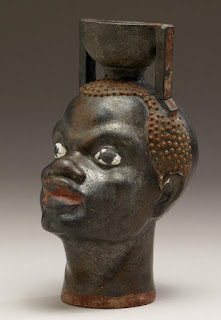Greece is not the EU's gatekeeper
Greece's attitude towards Macedonia is unfortunate and unhelpful.
The European Union appears to be labouring under a particularly unfortunate Greek curse, affecting not just the public finances of the eurozone, which have recently brought Cyprus to its knees, but also the enlargement of the EU.
Greece insisted that the ‘big bang' enlargement of 2004 should include Cyprus. The EU accepted that, under the threat of a Greek veto. The compensating hope – that Cyprus's 30-year division would end – came to nothing, because Greek Cypriot voters rejected a United Nations-brokered plan.
Greece has now made itself the gatekeeper for the admission of Macedonia (or the former Yugoslav republic of Macedonia, as it insists on calling it) to EU membership talks. It has blocked the start of accession negotiations since 2009, when the European Commission first recommended that member states should launch such talks.
The result is desperately depressing. The Commission is forced into institutional workarounds, creating mechanisms designed to encourage domestic reforms to keep ticking over while not touching the reforms that Macedonia most needs, since Greece does not want a camouflaged accession process. The isolation of the Macedonians saps reform efforts and provides a seedbed for nationalism. The current Macedonian government has nurtured those seeds and its vast monument-building project in Skopje advertises nation-building ambitions.
In turn this has contributed to doubts in Bulgaria which in December signalled that it opposed accession talks with Macedonia. That is a dramatic shift from a country whose support helped keep Macedonia out of the Yugoslav wars – a period in which, as it happens, Greece's then foreign minister and current prime minister, Antonis Samaras, was thanked by the late Serbian leader Slobodan Miloševic for his “multidimensional active support” for Serbia in the EU.
It is a perverse situation when the position of a long-standing supporter of Macedonia has become perilously close to that of Greece. While all sides have contributed to this perversity, Greece has made an outsize contribution over the past two decades to souring emotions, turning politics into a circus of symbolism and spectacle, calcifying diplomacy, endangering regional security and paralysing EU policy.
Štefan Füle, the European commissioner for enlargement, has been turned into a crisis manager, mediating between political factions in Macedonia, and he must be aware that more crisis management looms. Isolating Macedonia weakens efforts to keep Macedonia's ethnic-Albanian minority integrated. A similar challenge in Kosovo – to prevent isolation – has just become more acute. Again, Greece contributes. Serbia, whose strongest EU supporter is probably Greece, this week rejected an EU-brokered deal with Kosovo, whose statehood Greece (and Cyprus) denies.
Regrettably, Greece's policy helps keep the region close to violence instead of consigning to history Macedonia's civil war of 2001, the Yugoslav wars of the 1990s, and, indeed, Greece's civil war of 1946-49 (a war fuelled partly by Macedonia's incorporation into Yugoslavia). The success of efforts by the EU to extend its peace and prosperity into much of the Balkans – to Macedonia and, eventually, possibly to Kosovo, Bosnia and Albania – hangs on the position of Greece. That is deeply unsatisfactory and the European Council should not let it go unchallenged.



